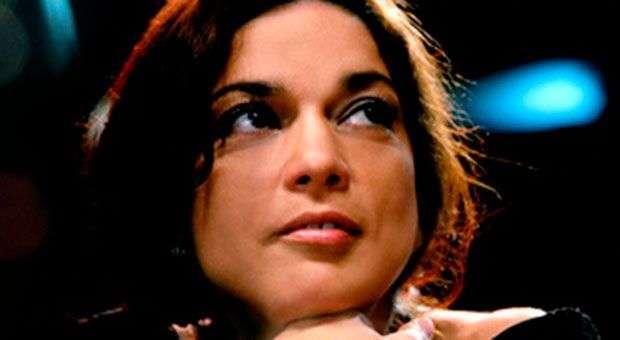The singer Bárbara Llanes, considered by critics the best Cuban soprano in recent decades, will perform today at the headquarters of the United Nations Educational, Scientific and Sport, UNESCO in Paris, France.
Days ago Llanes gave two concerts at the Art Center of Enghien-les-Bains of the French capital. There she was accompanied by pianist Rolando Luna. After the reaction of the audience, during the last of the presentations entitled “Cuban Classic”, both artists had to repeat the “Salida de Cecilia Valdés” from the operetta composed by Gonzalo Roig.
Soloist of the National Center of Concert Music, belonging to the National Philharmonic of Cuba, and singing teacher at the Higher Institute of Arts, OnCuba spoke with the outstanding performer, just before she left for France, for details of the presentation in the European country, and her opinion about the current state of Cuban lyrical movement.
With whom will you perform at the headquarters of UNESCO?
It will be another group, I will be accompanied by pianist Marta Lahens , clarinetist Lester Chio and Ahmed Dickenson joins us enthusiastically and will travel to Paris to be at that concert.
We will do a more international repertoire although there will be no shortage Cuban songs , in the program we include Bachianas Brasileiras , number five of Heitor Villa Lobos, European composers such as Franz Schubert and Wolfgang Amadeus Mozart to do chamber music for clarinet and piano. We conceived also works with piano solo, with clarinet solo, because it is shared with Cuban friends and that gives me pleasure, meeting with Cubans who made a huge concert work in those countries.
Lester Chio is s clarinetist in the orchestra of the Opéra de Rouen in France, and Ahmed Dickenson has a laudable career; in London he has a label and teaches guitar at the University, I mean, they are young with a very important career in Europe and we will meet with much pleasure.
On your visit to Paris you will record a disc, it will be live or studio?
The album will come out of the recording of two live performances in the Art Center of Enghien-les-Bains.
How was the idea of Classic Cuban born?
The idea is of Dominique Roland and Carmen Mayans who heard me sing in Havana and liked it a lot.
At that time the teacher Alicia Perea and I were performing Gisela Hernandez songs that are more contemporary, but they decided that this time we chose to Ernesto Lecuona, Sánchez de Fuentes, Sindo Garay, Eliseo Grenet, Guillermo Tomas, a more traditional repertoire and perhaps then enriched with latest songs.
Their idea was to interpret songs of the Cuban romance of the late nineteenth and early twentieth century; I would say they are more post romantic because music is something like fairly traditional or near the romantic period.
But is not the music you usually play?
It is true, though I sing a lot of Cuban music in my concerts.
There are works that I prepared especially for this occasion. For the first time I sang yambambo , Nicolás Guillén poem with music by Emilio Grenet. As well as Yo se de un beso, a song I ‘ve always loved , a beautiful melody and a beautiful text and I was given the opportunity now . The habanera Tu, by Sanchez de Fuente, I don’t do it often.
There are some songs that I do not interpret frequently but there are others I am consistently singing anywhere, live or recorded and others already recorded with Frank Fernandez at the ” Love and Pain ” disc that was a CUBADISCO Award , and the public ask me for in any presentation.
The themes chosen now are any audience’s favorite, it’s amazing.
How was the project with pianist Rolando Luna born?
I always thought about Rolando Luna. When the “Love and Pain ” disc, all versions are by Frank Fernández because as it is Cuban music very close to popular some of those songs are from the traditional trova and are not written in sheets, such as Perla Marina, The red rose . Frank Fernandez made all the arrangements and I kept faith that whenever I interpret this repertoire I had a pianist as good as Frank, who play piano spectacularly well and at the same time is a great composer and makes such beautiful arrangements.
I had to think Rolando Luna, a young man who has had an upward , glorious , spectacular career , who is a great jazz and traditional Cuban music pianist, and composer , all I needed to do then , versions of these songs and labor for other tours because I hope to continue in this duet with Rolando
In the only presentation in Havana there was empathy, a magical halo between you and Luna?
Really, I’m glad you noticed. We have a lot of communication, I really like the music he makes and so I feel very happy, very comfortable. I am convinced that after a tour or more jobs we will make this communication grow, this empathy, we will create a lot more, still have a ways to go.
As a singer and teacher how do you evaluate the lyrical movement in Cuba is, for which stage is transitioning?
A lyrical movement? That does not exist, unfortunately, for there to be a movement has to move around, and it does not move at all , rather, what we have is a lyrical statism.
Efforts were made but efforts don’t have a single goal, every person, every group that are like of two doesn’t have a guideline to follow a goal , an end , everything is broken , split and so there is no movement , if everything moves chaotically there is no rotation.
Also we need significant support and I will not talk about money that is essential and vital for artistic production in all fields, from medicine to space travel, and the help that is needed is institutional, which is given a value, the quality which is prime, not indiscipline, each doing what they want and what you can. It has to be guided by an institution of music or better yet ministerial direction.
There are many details, one is the technical-professional preparation is important and has not been achieved, if to the technical-professional preparation you add ethics, artistic ethics is absent here and you find a baseless competition, and that competition it is not what we seek or need.
That happens because the formation of singers is a bit difficult, few of us who teach and the outcome is quite poor, not quality but quantity. You give class to one person and that boy, if you have a well progress and talented often be looking for other ways because it’s hard work to make a career from here, then, some because they get in a path and want to leave and others accomplish nothing.
So, it is very hard training good professionals, good with other illusions, some hope that sometimes they succeed and sometimes they do not achieve anything, because if they knew how insecure is fetching new ground, instead of putting down roots in a place who are in need and would be better for them and for us.
Photo taken from Giron










